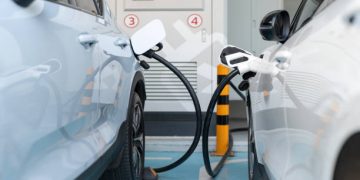Honda Motor Co., Ltd. is set to establish a comprehensive electric vehicle (EV) production network in Ontario, Canada, representing an investment of approximately USD 11 billion, including contributions from joint venture partners. This strategic move aims to enhance Honda’s EV manufacturing capabilities in anticipation of growing demand in North America. The plan includes the construction of a new Honda EV plant alongside a dedicated EV battery facility in Alliston, Ontario. Additionally, the initiative will see the development of a cathode active material and precursor (CAM/pCAM) processing plant through a joint venture with POSCO Future M Co., Ltd., and a separator plant in collaboration with Asahi Kasei Corporation. Details regarding the locations within Ontario for these facilities will be announced later.
Production at the new EV manufacturing plant is projected to start in 2028, with an expected annual output of 240,000 electric vehicles. The adjacent battery plant will boast a production capacity of 36 GWh per year. The expansion will not only maintain Honda’s current workforce of 4,200 at its existing facilities in Ontario but is also anticipated to create at least 1,000 new jobs at the new manufacturing sites. The project is expected to generate additional employment opportunities in the construction sector and related fields. Honda is currently finalizing the scope of this investment and completing discussions with its joint venture partners, with more detailed information to be made public in the coming six months.
Support for this significant expansion includes collaboration with the Canadian and Ontario governments. Honda aims to tap into federal and provincial incentives, such as the new Investment Tax Credits and other performance-based initiatives, to foster innovation in low-emissions manufacturing. This initiative is part of Honda’s broader commitment to achieve carbon neutrality for all its products and corporate activities by 2050. Honda has set an ambitious target for battery electric vehicles (BEVs) and fuel cell electric vehicles (FCEVs) to constitute 100% of its vehicle sales by 2040, particularly focusing on its largest market in North America.
The Ohio EV hub is expected to play a crucial role in this strategy, serving as a base for sharing expertise and knowledge with Honda’s new facilities in Ontario. This includes leveraging the resources and clean energy available in Canada to build a stable and cost-competitive supply system for EV batteries. Toshihiro Mibe, Global CEO of Honda, emphasized the company’s commitment to its 2050 carbon neutrality goal and the strategic importance of the Canadian expansion in Honda’s North American operations. Jean Marc Leclerc, President and CEO of Honda Canada Inc., highlighted the project as a historic investment in the Canadian automotive industry, celebrating Honda’s long-standing presence and its future in electric vehicle production in Canada.
Stay informed with supply chain news on The Supply Chain Report. Free tools for international trade are at ADAMftd.com.
#EVNews #ManufacturingNews #SustainabilityNews #CleanEnergy #CanadaNews













